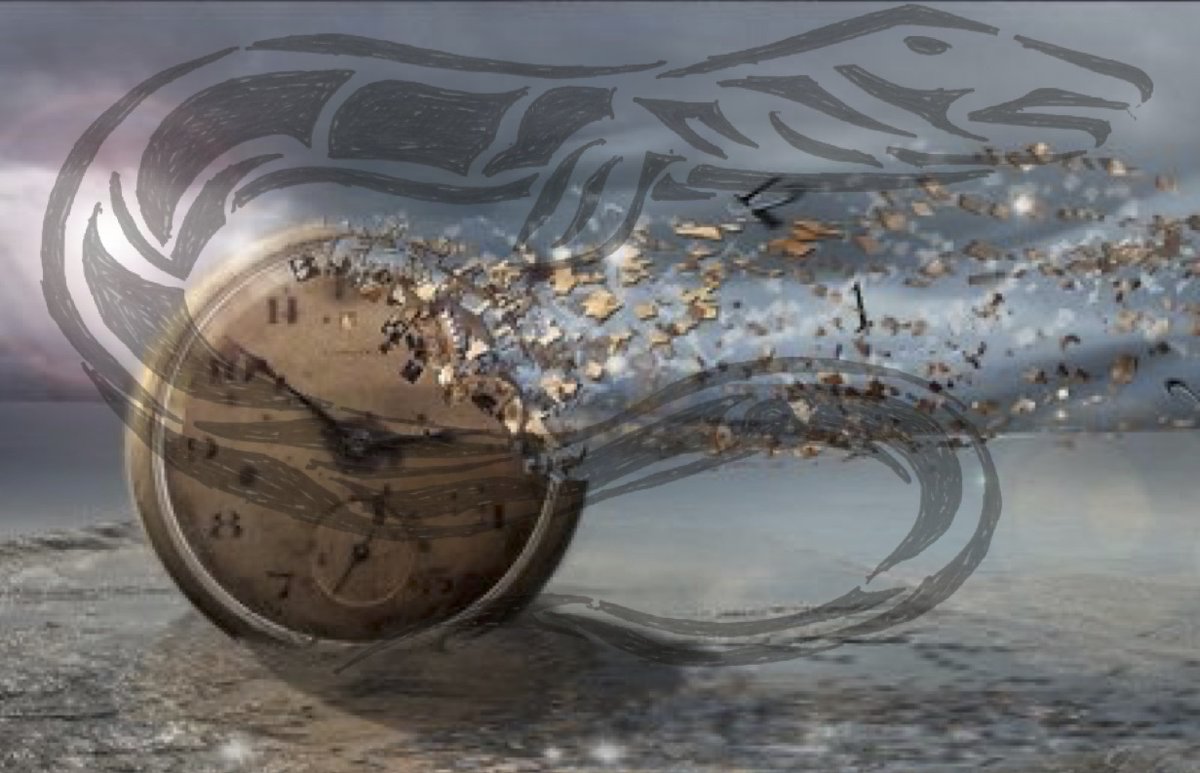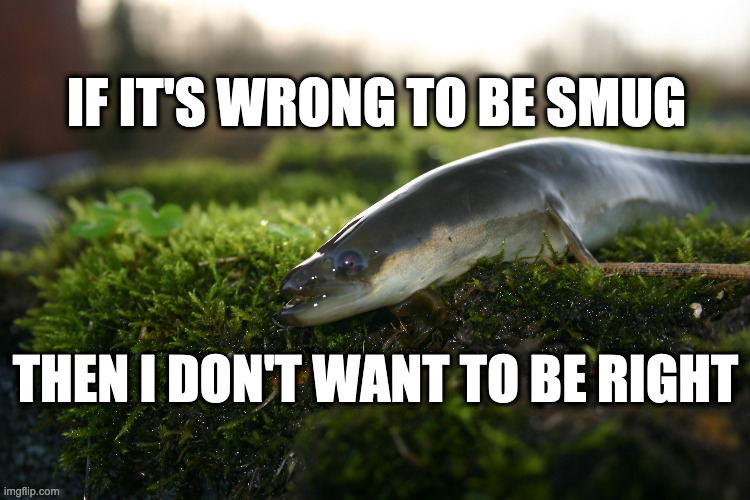Today I& #39;m going to be writing about eels in figurative language. Examining metaphors, similes, etc. is a useful way of getting a sense for a historical culture.
Lots of metaphors = culturally important (roughly).
And pre-modern English had a lot of eel metaphors. 1/14
Lots of metaphors = culturally important (roughly).
And pre-modern English had a lot of eel metaphors. 1/14
(Language disclaimer: for this thread I& #39;m using "metaphor" to cover all type of figurative language.)
In the US and Britain at this point we don& #39;t have much to do with eels. And we& #39;ve really only got 1 metaphor: as slippery as an eel. 2/14
In the US and Britain at this point we don& #39;t have much to do with eels. And we& #39;ve really only got 1 metaphor: as slippery as an eel. 2/14
That& #39;s an old metaphor...it goes all the way back to the ancient Greeks (at least). And pre-modern English had it too.
For example, the 15th C. poet Thomas Hoccleve complained about writer& #39;s block by noting that his thoughts were "slipir as an eel." 3/14
For example, the 15th C. poet Thomas Hoccleve complained about writer& #39;s block by noting that his thoughts were "slipir as an eel." 3/14
That same idea was used to describe other slippery things. In 1555 John Heywood used it to explain how time gets away from us:
Take tyme when tyme cumth,
Assay to be holde of it,
But slyper as an eeles tayle is the holde of it.
But eels& #39; slipperiness wasn& #39;t the end of it: 4/14
Take tyme when tyme cumth,
Assay to be holde of it,
But slyper as an eeles tayle is the holde of it.
But eels& #39; slipperiness wasn& #39;t the end of it: 4/14
Eels also made great penis metaphors!
The 16th C. composer Thomas Whythorne wrote that while maids care about fancy clothes, widows have other priorities.
To court one, he says, you "must not carry quick eels in [your] codpiece but show some proof of being stiff before." 5/14
The 16th C. composer Thomas Whythorne wrote that while maids care about fancy clothes, widows have other priorities.
To court one, he says, you "must not carry quick eels in [your] codpiece but show some proof of being stiff before." 5/14
In fine...widows don& #39;t care about the bling, so much as they care about making sure the eel in your pants isn& #39;t floppy & hard to hold.
This kind of eel metaphor shows up frequently; playwrights like Shakespeare, Beaumont, & Fletcher made good use of it. 6/14
This kind of eel metaphor shows up frequently; playwrights like Shakespeare, Beaumont, & Fletcher made good use of it. 6/14
Shakespeare liked eels. They appear in his writing more than any other fish, & always as metaphor. There are eels in:
- King Lear
- Pericles
- Taming of the Shrew
- Loves Labors Lost
- King John
- Henry IV
- The 2 Noble Kinsmen
And lots of his contemporaries did the same. 7/14
- King Lear
- Pericles
- Taming of the Shrew
- Loves Labors Lost
- King John
- Henry IV
- The 2 Noble Kinsmen
And lots of his contemporaries did the same. 7/14
Eel fishing had metaphorical currency, too. Chaucer, in HOUSE OF FAME, describes people chasing a desired thing as "stampen, as men doon aftir eles."
He& #39;s talking about the practice of driving eels towards a net by stomping, & using it to invoke a sense of hurried frenzy. 8/14
He& #39;s talking about the practice of driving eels towards a net by stomping, & using it to invoke a sense of hurried frenzy. 8/14
Similarly, in his 1607 play LINGUA, Thomas Tomkis noted that “He that will catch Eeles must disturbe the floud.” Put another way: nothing ventured, nothing gained.
Eels like cloudy water, so if you get in there & muddy the water you& #39;re more likely to catch one. 9/14
Eels like cloudy water, so if you get in there & muddy the water you& #39;re more likely to catch one. 9/14
Eel& #39;s slender nature made them good fodder to talk about body size. A thin person might be described as an eel, and in James Howard& #39;s 1672 play ALL MISTAKEN one character curses another, hoping she becomes so fat that other fat people all look like eels to her. 10/14
Eels were sometimes seen as Catholic fish, & so could be a religious metaphor, as well.
In an especially gross example, the author Peter Pett wrote in 1688 that England returns to religious strife like a cormorant repeatedly eating, passing, and re-eating an eel. 11/14
In an especially gross example, the author Peter Pett wrote in 1688 that England returns to religious strife like a cormorant repeatedly eating, passing, and re-eating an eel. 11/14
Pre-modern English really had quite a variety of eel metaphors. Others include:
A "merchant of eel-skin" was a fake, or fraud. Someone who sold you the eel w/o the meat.
"Fresh as an eel" was a medieval expression in N. England that lasted at least through the 19th C. 12/14
A "merchant of eel-skin" was a fake, or fraud. Someone who sold you the eel w/o the meat.
"Fresh as an eel" was a medieval expression in N. England that lasted at least through the 19th C. 12/14

 Read on Twitter
Read on Twitter



![Eels also made great penis metaphors!The 16th C. composer Thomas Whythorne wrote that while maids care about fancy clothes, widows have other priorities. To court one, he says, you "must not carry quick eels in [your] codpiece but show some proof of being stiff before." 5/14 Eels also made great penis metaphors!The 16th C. composer Thomas Whythorne wrote that while maids care about fancy clothes, widows have other priorities. To court one, he says, you "must not carry quick eels in [your] codpiece but show some proof of being stiff before." 5/14](https://pbs.twimg.com/media/EkTP0DLXkAEYYtY.png)








